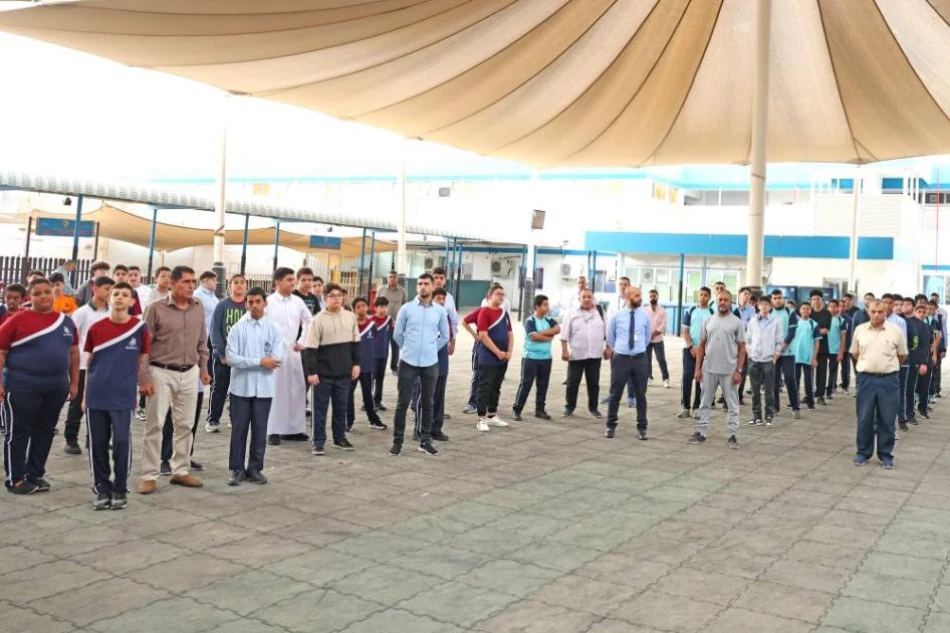
Back to School: Students Eagerly Return to UAE Classrooms
UAE Schools Welcome Over One Million Students in Ambitious New Academic Year
The UAE's education system launched its new academic year with remarkable fanfare as over one million students returned to classrooms across the nation on Monday, marking what could be a transformative period for the country's educational landscape. Beyond the traditional back-to-school excitement, this year's opening signals a strategic shift toward innovation-driven learning and stricter accountability measures that reflect the UAE's broader vision of becoming a global knowledge hub.
A Carefully Orchestrated Welcome
From the early morning hours, school courtyards buzzed with activity as teachers and administrators lined up to welcome students and parents in a display that demonstrated the educational institutions' readiness for the new academic year. This wasn't merely about opening school doors—it represented a comprehensive program designed to prepare students psychologically and emotionally for the challenges ahead.
Schools across Dubai and Sharjah organized morning welcome events featuring simple performances, national songs, and symbolic gift distribution for younger children to ease first-day anxieties, particularly for elementary and kindergarten students. The visible pride and happiness on parents' faces as they accompanied their children toward this new beginning added warmth to the scene, creating an atmosphere of shared optimism about the year ahead.
Modern Teaching Methods Take Center Stage
Inside classrooms, the fruits of recent preparation efforts became evident. Schools had equipped their facilities with modern educational tools and teaching aids designed to ensure a successful launch. Teachers employed diverse approaches to connect with students, including open sessions, brief discussions, and educational games to reduce return-to-school anxiety and create more interactive environments.
Students demonstrated notable engagement with their teachers and peers, confirming their enthusiasm for returning to collaborative learning atmospheres. This interactive approach represents a significant departure from traditional rote learning methods that have historically dominated regional education systems.
Digital Innovation and Critical Thinking Focus
School administrations emphasized that the new academic year will serve as an opportunity to enhance modern teaching methods based on innovation and digital technologies, with a focus on developing critical thinking and research capabilities among students. The revised curricula will provide broader scope for practical interaction, allowing students to engage in educational experiences more closely connected to real-life situations and future aspirations.
Comprehensive Student Development Beyond Academics
The preparation extended beyond academic aspects to include accompanying activities that form a fundamental pillar in building student character. School administrations allocated preliminary programs to introduce students to sports, cultural, and artistic activities that will accompany them throughout the year, emphasizing the importance of participation as a space for discovering talents and honing skills.
School courtyards and playgrounds are expected to host diverse activities in the coming weeks, strengthening team spirit and belonging among students—a crucial element in developing well-rounded individuals capable of contributing to the UAE's diversified economy.
Stricter Attendance Policies Signal New Era of Accountability
School administrations confirmed in circulars addressed to parents the importance of attendance from the first day of the academic year. The administrations clarified that absence calculation mechanisms will be applied precisely according to the "Al Manhal" system, warning that increasing the number of unexcused absence days will lead schools to transfer the student's file to relevant authorities.
The circulars emphasized that these procedures aim not at punishment, but rather at enhancing discipline, instilling commitment values among students, and protecting their right to regular education. This represents a significant tightening of accountability measures that aligns with broader UAE initiatives to improve educational outcomes and international rankings.
Student Voices Reflect Mixed Emotions and High Expectations
Interviews with returning students revealed the diverse range of emotions accompanying this new academic year. Salma Ahmed, a seventh-grade student, expressed enthusiasm about returning to school after summer vacation, stating her excitement to see friends and teachers again while looking forward to learning new things in science and mathematics and participating in artistic and sports activities.
Abdullah Firas Al Shehhi conveyed feelings of curiosity mixed with slight anxiety, saying he was happy to start the new academic year but felt some tension about tasks and tests, hoping that classes would be enjoyable and conducive to easy learning.
Khamis Al Jasmi, an eighth-grade student, demonstrated mature perspective: "I believe beginnings always carry some challenge. Nevertheless, I consider this stage a unique opportunity to acquire different experiences, and I am keen to have a strong start, especially in following daily lessons to achieve the best results."
Strategic Implications for UAE's Knowledge Economy
This comprehensive approach to education reform positions the UAE competitively against other regional knowledge hubs like Singapore and reflects lessons learned from global best practices. The emphasis on digital integration and critical thinking aligns with the country's Vision 2071 goal of becoming the world's best country by its centennial.
The stricter attendance policies and enhanced parent-school communication systems suggest the UAE is taking a more systematic approach to educational accountability—a move that could significantly impact international education rankings and the country's attractiveness to expatriate families.
As the UAE continues its economic diversification away from oil dependence, investing in human capital through educational innovation becomes increasingly critical. This academic year's ambitious start suggests the country is serious about transforming its educational system into a genuine competitive advantage in the global knowledge economy.
Most Viewed News

 Omar Rahman
Omar Rahman






